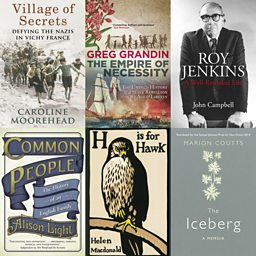A guide to the shortlist for The Samuel Johnson Prize for Non-Fiction 2014
“All the best stories are true” is the motto of the Samuel Johnson Prize for Non-Fiction and none more so than those books shortlisted this year. The six stories span far and wide, from West Africa to the Pacific Ocean, remotest France to rural England, criss-crossing the globe and covering the big themes; life, death, politics and nature. And, for the first time in its 16 year history, women authors outnumber men.
Ahead of the announcement of the winner on November 4th . The programme features interviews with the authors and Kirsty is joined by two of this year’s judges, historian Claire Tomalin and labour MP Alan Johnson to discuss the six nominated books.
Who gets your vote? Here's the shortlist:
Village of Secrets: Defying the Nazi’s in Vichy France by Caroline Moorehead
tells the extraordinary story of how a cluster of remote communities in the mountains of south east France saved thousands of people – men, women and especially children - from the concentration camps. In the midst of terrible darkness this place and these people somehow became a beacon of humanity.
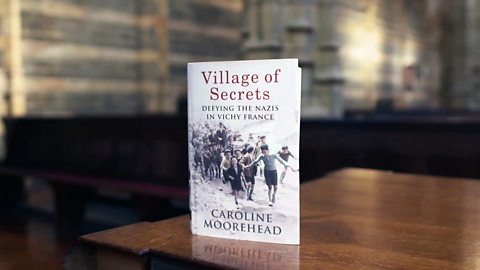
Village of Secrets by Caroline Moorehead
Caroline Moorehead discusses her latest book.
The Empire of Necessity: The Untold History of a Slave Rebellion in the Age of Liberty by Greg Grandin
When American seal hunter, Captain Amasa Delano, comes across a drifting slave ship he goes to the assistance of the Spanish crew. Only later does he discover that the slaves are actually in charge, having risen and killed their “owner” several days before.
The Empire of Necessity is an epic human story that criss-crosses the globe and offers a discomforting meditation on ideas of liberty and slavery.
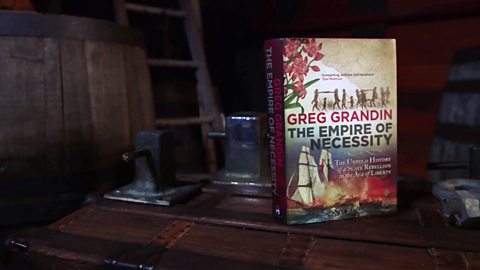
The Empire of Necessity by Greg Grandin.
Author and historian Greg Grandin talks about The Empire of Necessity.
Roy Jenkins: A Well-Rounded Life by John Campbell
His politics and personal life may be at odds with today’s political landscape, but is often referred to as the greatest prime minister we never had. Among his many achievements, he was responsible for driving through the decriminalisation of homosexuality and the legalisation of abortion. He also enjoyed a rather unconventional private life.
Self-confessed Jenkins fan, tirelessly unearths Jenkins ‘well-rounded life’ in this biography, illustrating a career which spanned a half-century from Attlee to Tony Blair, from his Welsh coal mining background to forming the SDP. Campbell celebrates Jenkins warts and all depicting an inspirational and progressive, if at times somewhat self-indulgent man, who left an enduring mark on British society.
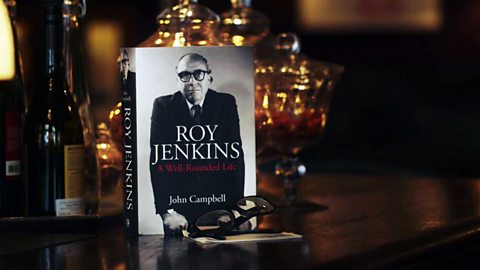
Roy Jenkins: A Well-Rounded Life by John Campbell
John Campbell explains how he went about writing his biography of the late Roy Jenkins.
Common People: The History of an English Family by Alison Light
delves into her family history in Common People and re-defines the genre in the process. This very personal story - written in part as a tribute pilgrimage to her father who was dying of cancer - moves between the present and the past in an extraordinary series of journeys spanning two centuries across Britain and beyond.
Starting out as an arm chair traveller with very little material, Light soon finds herself embarking on a journey which uncovers the past about her own family - like the tragic story of Sarah, her great-grandmother who was born in a workhouse and died in an asylum - but also a much forgotten public history of the industrial revolution.
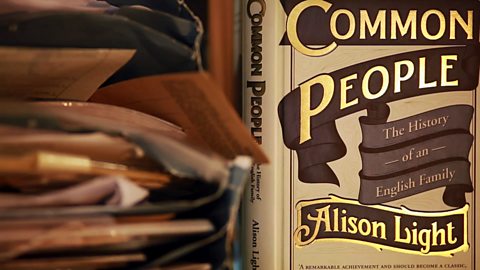
Common People by Alison Light
The author talks explains what led her to write Common People.
H is for Hawk by Helen Macdonald
Following the sudden death of her father, ’s life is plunged into darkness. Macdonald, (a Cambridge Historian) and a keen falconer had flown birds of prey since the age of 11 but she had never been tempted to train the bloodthirsty and fierce goshawk. In the wake of her loss, Macdonald finds herself drawn to the mysterious creature and resolves to purchase a female whom she names Mabel.
Combining nature-writing with personal memoir and biography (Macdonald also weaves in a biography of the writer and his own disastrous attempt to train a goshawk) this is ultimately an account of a woman dealing with grief, by putting herself in the wild mind of a hawk in order to understand what it means to be human.
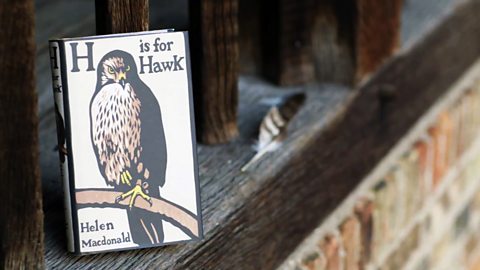
H is for Hawk by Helen Macdonald
The author discusses her obsession with hawks.
The Iceberg by Marion Coutts
In The Iceberg, artist ’ gives an unflinching account of family life under siege after her husband, art critic Tom Lubbock, is diagnosed with a brain tumour. Lubbock’s tumour was located in the area of the brain that dictated speech and language and at the same time as holes in his speech started to appear, their 18-month-old son Ev grappled with the joys of learning new words on a daily basis. Remarkably, Lubbock was able to continue his journalism even as words began to drop away.
Written in the present tense Coutts opens up a harrowing and relentless world of hospital visits, operations and the trials of caring for an 18-month-old child alongside a dying husband, but that is ultimately filled with laughter, love and dignity, for all the family.
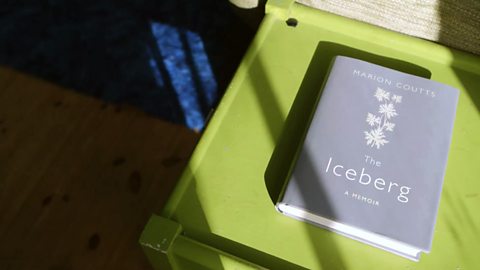
The Iceberg by Marion Coutts
Coutts explains why she chose to write The Iceberg in the present tense.
